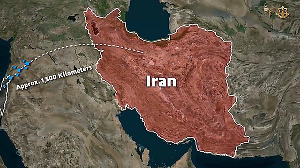Only a strong and sustained leadership can only bring it back from the brink, says Pramod Kumar Buravalli.
Not many realise that the world has entered a stalemate much akin to the period before the 1st World War. The European economic system has begun to wilt, Americans are scurrying to create jobs and confidence, the Chinese are unable to penetrate newer markets, the Islamic world is driving hard towards political extremism and the Africans are constantly struggling to realise the potential of the resources they have at their disposal.
That leaves out the only other group or grouping -- India and it's so called loosely tied friends and well-wishers predominantly in the Buddhist world.
Since the 1980's, there has been a conscientious approach followed by Indian leadership to slip in and out of the world radar. Ask any Indian politician or bureaucrat today, they will say the same thing "On a world stage, let's keep a low and humble profile yet constantly demand to be seated at the high table of world powers because of the size of our economy, our scientific and technical potential and because we too have nuclear weapons." Sad but true!
The cardinal principle of power projection which is to let your success and achievements do the talking, has never been taken seriously by Indian ambassadors.
With multiple internal contradictions and confusions, the Indian nation state slowly rumbles along and somehow survives! Well-wishers of India call this our intrinsic nonchalant nature; I call it lack of clarity and strategic thinking towards our place in the world.
The current political dispensations across the political spectrum do not seem to understand what unified political response means to certain issues concerning national pride and visibility.
Take for example, the recent uproar in the British Parliament and its media about the proposed Indian space mission to Mars. The mission to Mars was announced by Prime Minister Manmohan Singh during the Independence Day speech in New Delhi.
Sending British aid overseas has recently become a sensitive issue in the context of global recession, deep funding cuts and major job losses as the David Cameron government deals with a large budget deficit. However, the budget for British aid overseas had not been reduced; prompting demands from several MPs and sections of the public to stop sending aid to increasingly prosperous countries like India as they perceived it.
An example of the sensation-driven tabloid reporting in UK is a report in the Daily Express, which raised the wisdom of sending aid to India, with the far-fetched headline, 'We pay for India's rocket to Mars'.
If I were in politics today and have an iota of self-respect left in me, I would have made a public statement asking the British to stop aid to India. If this aid was really meant for poverty alleviation, towards furthering or retaining British influence in India, lobbying for military hardware sales, then that money is surely being wasted.
Pranab Mukherjee and a couple of leaders had raised their voices against such similar outbursts in the UK media and parliament, a couple of months ago before Mukherjee became the President of India. But alas, no one cared to respond from the Indian side today or this week or this month when the debate was at its crescendo in the UK!
In the past and to a certain extent; Rajiv Gandhi, P V Narasimha Rao and Atal Bihari Vajpayee were able to dispel the notion of a lack of plan or direction. Vajpayee certainly took the biggest risk of them all by openly going nuclear which today remains the ultimate deterrent against both internal and external designs for the disintegration of India.
Long story short, all political parties particularly the BJP and the Congress have to realise the huge window of opportunity this global stalemate has presented itself to India as a nation. Fierce internal debates (away from the glare of the media and the parliament) between key stake holders be it the RSS, the Nehru-Gandhi family and key regional players have to be held and a course of action decided on several key areas including:
Uniform Indian stand on global issues including trade.
The boundaries and parameters of the Indian political economy and how global players, philosophies and ideologies can influence Indian discourse
Definition of secularism -- Hindu secularism, free for all secularism or simply separation of the state and religion in all matters.
Unless these three key issues are ironed out, the Indian public will continue to be vexed with the never ending cycle of elections, the constantly unintelligible media chamchas and most importantly, with politicians who for lack of better words, say and do the same things over and over again according to pre-written political scripts.
History has shown that the politicians will only have themselves to blame if they cannot build consensus on broad national issues. Hope history does not repeat itself in India!






